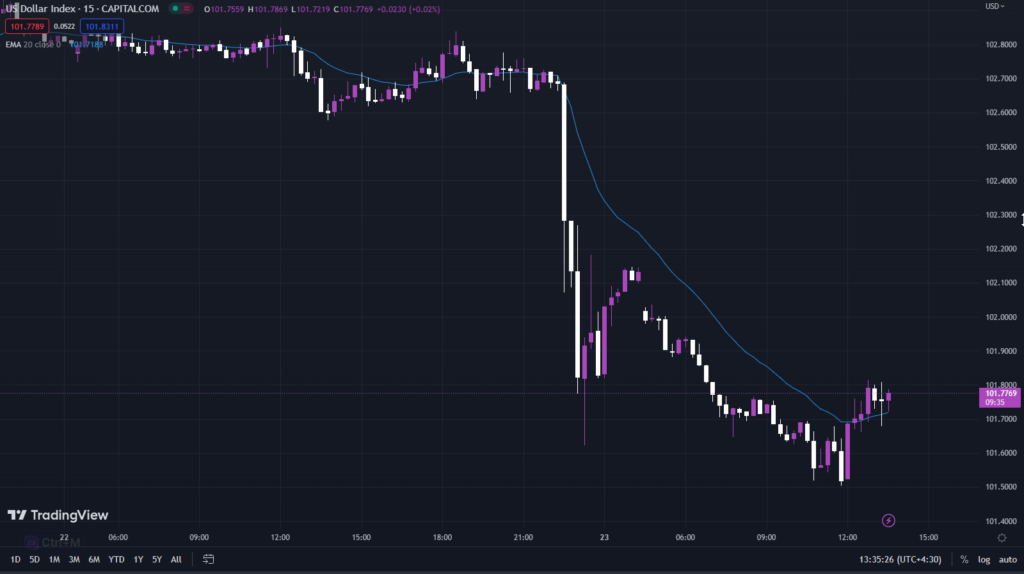The US Federal Reserve has reduced the expected pace of interest rate hikes, as anticipated. Additionally, Mr. Powell’s tone during the speech was such that investors felt more than ever the risk of an economic recession.
Mr. Powell started his remarks by addressing the risks that threaten the banking system, stating that “If appropriate measures are not taken to address these conditions, the banking system will be at risk.”
He also addressed the high inflation and weak housing market. Concurrently with his speech, the dollar index came under heavy selling pressure.

Continuing, we will recap his most important remarks:
🔹Our lending programs effectively meet the needs of banks.
🔹It appears that consumer costs have increased in the past three months, although some of it is related to weather.
🔹Our lending programs demonstrate that sufficient liquidity is available.
🔹We will closely monitor conditions and use all necessary tools.
🔹The job market is still very tight.
🔹Activity in the housing market is weak.
🔹Policymakers generally expect weak growth to continue.
🔹Higher rates and slower growth affect businesses.
🔹Wage growth has shown some signs of easing.
🔹The recent inflation publication strength indicates that pressures remain elevated.
🔹Inflation has moderated somewhat, but strong data releases show that inflation pressures remain elevated.
🔹The trend of declining inflation has a long way to go.
🔹Recent banking events may lead to tougher credit conditions. This affects our economy and our response.
🔹From the last meeting, economic data has been stronger than expected, but we believe recent banking events will lead to tougher credit conditions.
🔹We are continuing our trend of significantly reducing our balance sheet.
🔹Based on the totality of data, we will make decisions on a meeting-by-meeting basis.
🔹Reducing inflation is likely to require a period of slower growth.
🔹The banking system is healthy and flexible, and deposit flows have been stabilized in the banking system.
🔹We are conducting a thorough review to see whether we need to strengthen regulations or not. We considered the problems of the banking system in the final days of the session.
🔹The mutual data on businesses and inflation were stronger than expected.
🔹A few weeks ago, we thought we should increase the final rate before banking pressures.
🔹We considered stopping the rate increase, but this increase was strongly supported.
🔹In fact, banking pressures can be considered equivalent to an increase in rates.
🔹The focus on the words “may” and “some” is increasing compared to “in progress”.
🔹Our statement sought to reflect the ambiguity arising from banking pressures.
🔹It is possible that banking may come under EBB pressure, and we have more work to do.
🔹A potential contraction in credit conditions may mean that monetary policy has less work to do.
🔹In the session, I heard that a significant number of members predicted a contraction in credit conditions.
🔹Harder credit conditions were included in our predictions.
🔹In most international periods, higher rates have been cited.
🔹I realized that there is an immediate need to review the banking system.
🔹Inflation in goods is decreasing, even if slower than we want, we still have no sign of progress in the non-housing services sector.
🔹We have yet to see progress on inflation in core services except for housing. However, inflation data indicates stronger inflation.
🔹We do not know how important or stable the impact of this credit contraction will be. This argues that when we think about further rate increases, we should be vigilant.
🔹At a basic level, SVB management failed badly. Federal regulators saw these risks and intervened.











